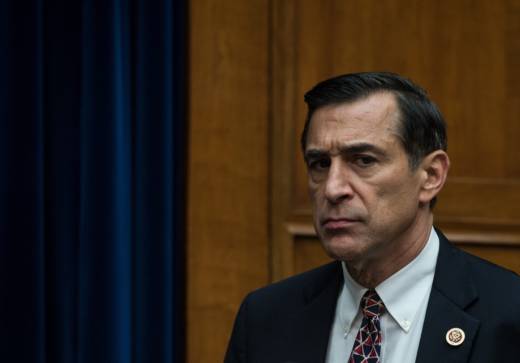Applegate, a retired Marine colonel, is running for the seat again, as is environmental attorney Mike Levin. A third Democrat, Paul Kerr, is also in the hunt.
Issa was one of two California Republicans to vote against the recent tax bill, which many see as hostile to states like California with high tax rates and housing costs.
As chairman of the House Oversight Committee, Issa was one of the most aggressive investigators of Hillary Clinton's role before and after the deadly terrorist attack on the U.S. Embassy in Benghazi, Libya, while she was secretary of State.
Issa tried to moderate his partisan image in his re-election bid last year, sending voters a pamphlet with President Barack Obama's photo -- even though he had been one of the Obama administration's fiercest critics.
In light of recent Democratic sweeps in Virginia and New Jersey and the party's pickup of a U.S. Senate seat in Alabama, Republicans are no doubt sizing up their chances for 2018. The short list of possible GOP candidates to replace Issa includes San Diego Assemblyman Rocky Chavez, considered moderately conservative, and Carl DeMaio, a Republican activist and leading force behind repealing the recent gas tax increase and the recall campaign against Sen. Josh Newman (D-Fullerton), who voted for it.
There are now 31 House Republicans who will not seek re-election in November: 19 who are retiring outright and another 12 who are running for higher office. And that list is expected to grow in the coming weeks.
The last time a party had nearly that many members retire during a midterm year was in 1994, when 28 Democrats left, and the GOP subsequently took back control of Congress in the so-called Republican Revolution.
Now, it's Republicans who find themselves in the opposite and unenviable position. One year into his term, President Trump has record low approval ratings, congressional Republicans have had few legislative achievements save for the tax overhaul they passed last month, and Democrats seem more fired up than ever to issue a rebuke to the GOP at the ballot box this year.
"There's no question when you look at these midterms that the Democratic base is more intense than the Republican base. And that offers some significant challenges to Republicans in holding the House, and retirements in marginal seats like [Rep. Ed] Royce's don't help," Tom Davis, a former Virginia congressman and ex-National Republican Congressional Committee chairman, told NPR.
Royce, the House Foreign Affairs chairman, is one of eight committee chairmen who are calling it quits. His seat is in one of three open districts held by a GOP member that President Trump lost in the last election, making it a top Democratic opportunity.
Democrats need 24 seats to flip control of the House, and history, in addition to other promising signs, is on their side. Going back to World War II, the president's party loses an average of 28 seats in his first midterm election — and none of those happened with a president's approval rating as low as Trump's.
According to the latest RealClearPolitics average, Democrats have an 11-point edge in the generic ballot, on track with where they need to be to pick up the seats to take control, even with the advantage Republicans have from gerrymandering and the pattern of Democratic voters clustered in urban areas.
"Vulnerable House Republicans would clearly rather call it quits than stand for re-election with a deeply unpopular agenda hanging over their heads," Democratic Congressional Campaign Committee spokesman Tyler Law told NPR. "The total number of Republican retirements and the importance of the open seats to the overall battlefield are a huge problem for Speaker Ryan's imperiled majority."
NPR contributed to this report.
